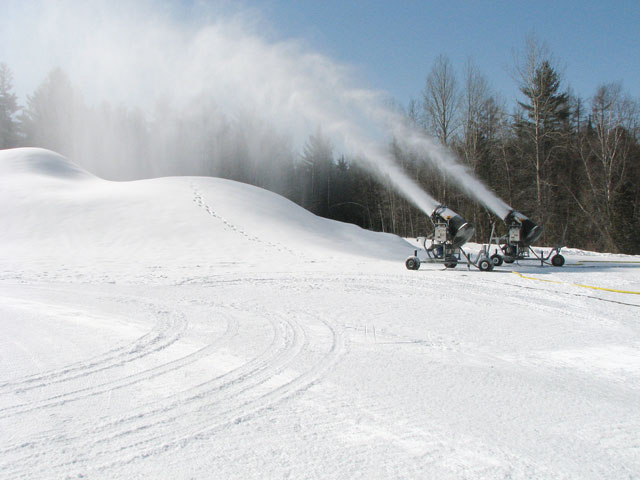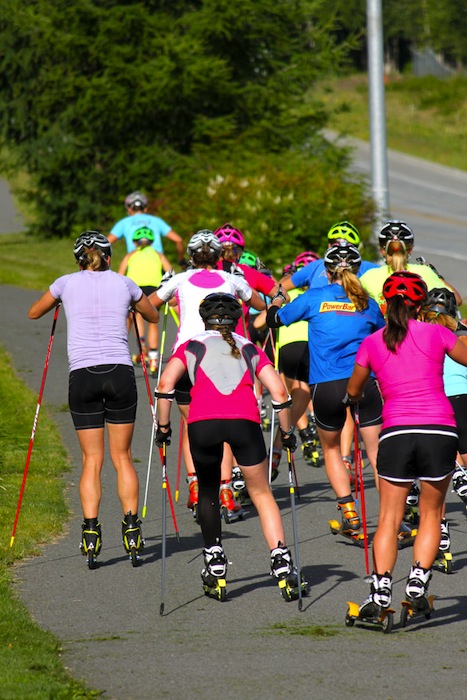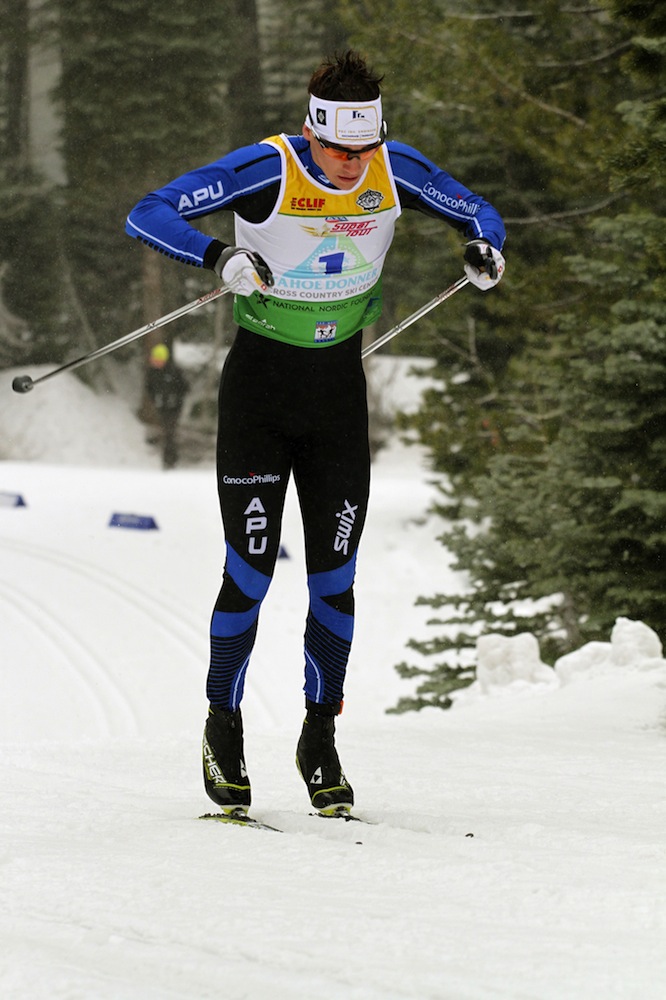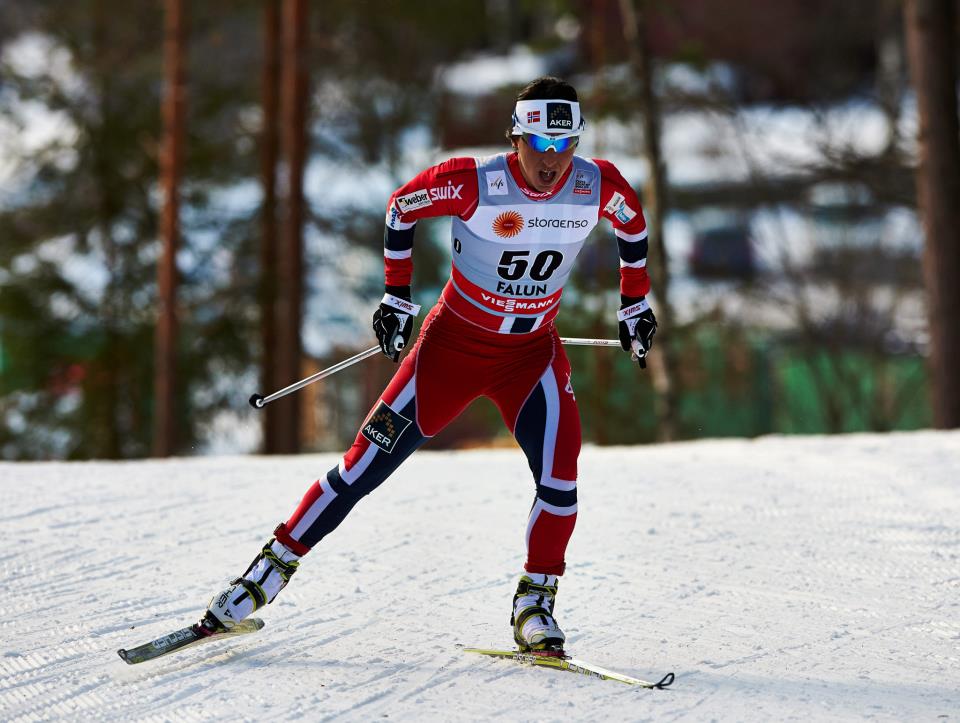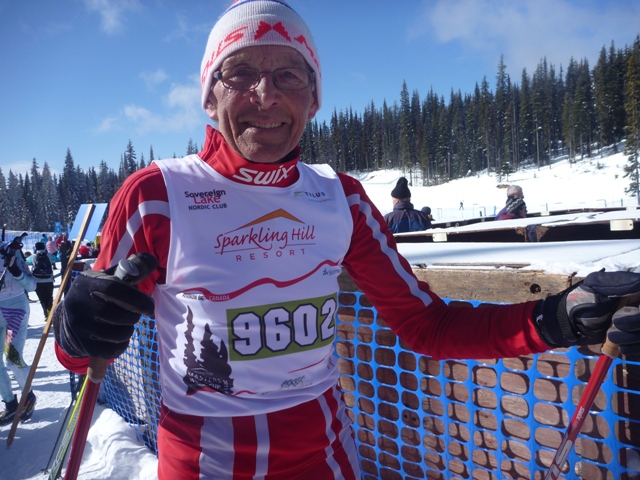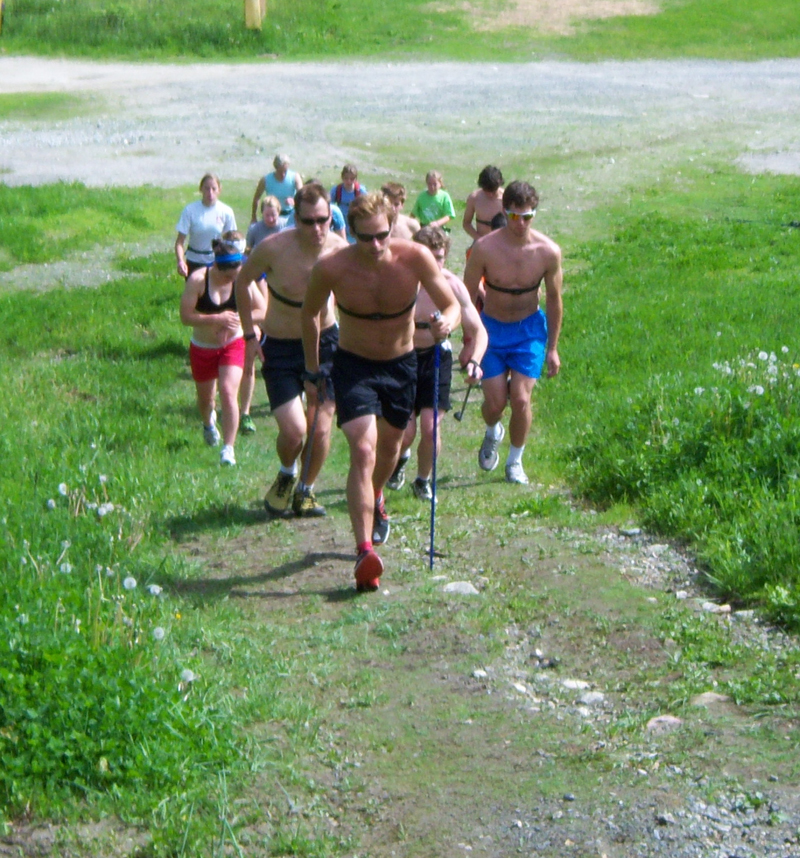This winter, three teams of researchers investigated attitudes towards climate change within the ski industry. They found huge cultural differences between how Austrians, Finns, and New Zealanders perceived the threat - with the Austrian industry having no adaptation strategy, while New Zealand is ramping up snowmaking - as well as between CEO's and the skiers themselves.
HomeTag
science
This Month in Journals: Managing Risks from Sun and Weight Loss; More Inhaler Fights
Chelsea LittleNovember 4, 2013
Kids are at particular risk of sunburn, and possibly later cancer, when they head out for a ski; athletes in weight-sensitive sports like skiing are at risk for developing eating disorders, and the IOC is trying to do something about it; new "designer" drugs for doping; and stop stressing out, coaches! Your job is bad for you!
The latest research used Norwegian and French World Cup skiers to look at how VO2Max and heart rate variability fluctuate over the course of one or several seasons. Plus, a new kind of "neurodoping" is now possible, using electrical currents or magnetic fields to make your brain better at everything.
This Month in Journals: Team Dynamics in Individual Sports, How to Prescribe Intervals
Chelsea LittleAugust 1, 2013
This month in scientific journals, researchers investigated how teammates affect performance in individual sports, which has rarely been considered; six Canadian skiers took part in the study. Also, how do you plan intervals? Uphill, or on the flat? Based on heart rate, percent of VO2Max, or anaerobic threshold? Two papers investigated.
Arms and Legs Aren’t Equally Efficient, But Improving Ski Technique Can Help Lazy Arms
Chelsea LittleJuly 9, 2013
Arm muscles aren't as good at leg muscles at extracting oxygen from the bloodstream - and they are actually worse in double-poling than in striding. That might limit the effectiveness of your upper body, but research suggests that modern double-poling technique actually maximizes what's possible for these arm muscles, while enabling faster skiing.
This Month in Journals: Controversy at the Intersection of Doping and Research
Chelsea LittleMay 28, 2013
This month, the Journal of Applied physiology confronted allegations of scientific misconduct in two cases: one when a study used an athlete who turned out to have been doping, and another when researchers asked participants to use banned methods. The journal invited discussion from many of the scientists involved as well as WADA, with interesting, and antagonistic, results.
Nordic sports are pretty egalitarian, as far as athletics go - but women are still confronted, constantly, with stereotypes about what is and is not appropriate or possible for them to do. In southern France, two researchers are focusing on what effects these stereotypes have on women's participation and performance in a wide range of sports, and explained their findings in an interview.
There's a correlation between the use of nutritional supplements and the willingness to dope; but why, and how? Does one cause the other? Plus, quick reads on whether caffeine improves ski performance (hint: it does!) and if minimalist footwear really helps approximate the mechanics of barefoot running.
By the time we hit 70, the physiological differences in how men and women respond to exercise have disappeared. Plus, we'll be smiling and thanking our parents for making us ski, because ex-athletes experience fewer fractures at that age. In other research, continuing the definition of "athlete's heart" and confirming a genetic basis of the training response.
Scientists have identified a handful of genes that control roughly a quarter of the variation in how people respond to endurance training. What does that mean for athletes - will we now be able to predict who might win a gold medal? FasterSkier talked to one of the researchers, Dr. Carl Johan Sundberg, to find out.
We look at two recent studies about interval training, each coming to a different conclusion about what's best - and then ask the question, how does this apply to real-life training? Pros and cons of academic research into endurance training, considered.
A recent report published by Protect Our Winters and the Natural Resources placed an economic value on climate change: for the winter sports and tourism industry, a billion dollars of revenue have been lost in bad snow years in the last decade, and a bad season means a six percent drop in employment compared to a good one. Yet the industry hasn't taken action.
A team from the University of Leiden pointed out that there have been no scientific studies examining EPO use in elite, professional cyclist. They concluded that this means that one can't assume a benefit in high-level sports - and they are wrong.
Plus, two different studies look at how different types of muscle used in various athletic activities might inform training. In the first, static stretching is worse for cycling than running; in the second, think about small-muscle strength exercises.
This Month in Journals: Does Compartment Syndrome Diagnosis Method Lead to Unnecessary Surgeries?
Chelsea LittleOctober 26, 2012
FasterSkier is starting a once-a-month series looking at new research in the field of sports science. Periodically, we’ll flip through some of the world’s best peer-reviewed medical journals and summarize, in plain English, studies that we think will be of interest to skiers. Here’s our second installment; you can check out the first in a recent paper in the Scandinavian Journal of Medicine and Science in Sports. “The pathophysiology of the condition is poorly understood,...
FasterSkier is starting a new, once-a-month series looking at new research in the field of sports science. Periodically, we’ll flip through some of the world’s best peer-reviewed medical journals and summarize, in plain English, studies that we think will be of interest to skiers. Here’s our first installment – enjoy! * Those dopers who claim that their blood measurements were funny because they just did a really hard workout might actually have a point. A...
When racers like Therese Johaug and Ivan Babikov reach the final day of the Tour de Ski, their bodies are already exhausted from day after day of racing. Their legs are tired, are they’re not alone: a recent study found that some aspects of heart function can not only decline, but remain suppressed after several days of consecutive races. But thanks to the human body’s remarkable ability to adapt to repeated stress, Johaug, Babikov, and...
At Polish three time overall World Cup champion Justyna Kowalczyk has never been one to keep her mouth shut. Take, for example, her accusation that Marit Bjoergen’s asthma medicine is performance-enhancing. “Without the medicine Marit would not have won gold medals,” Kowalczyk said at the 2010 Olympics in Vancouver. If Bjoergen has asthma, then it may very well be true. But Kowalczyk’s implication was that either Bjoergen did not have asthma and was taking the...

